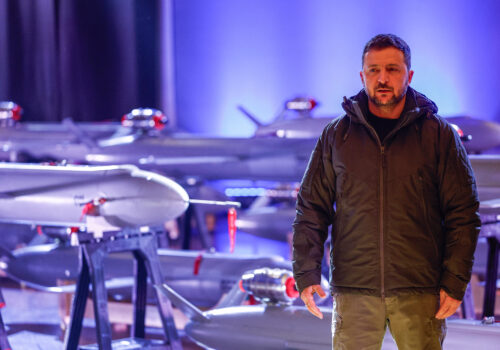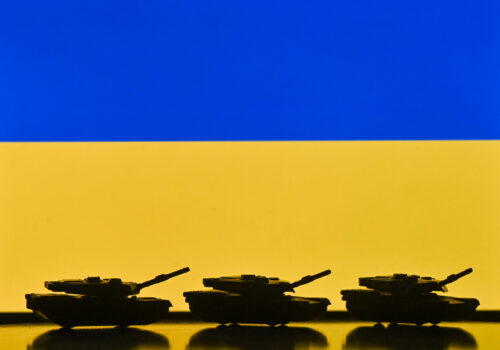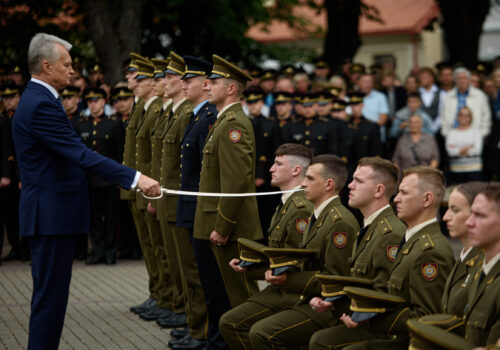World News – 2024 – Video Playlist | Video Playlists | Sites: | newsandtimes.org | links-newsandtimes.com | worldwebtimes.com | southcaucasusnews.com | russianworld.net | jossica.com | octobersurprise2016.org | bklyntimes.com | oceanavenuenews.com | fbireform.com | bloggersunite.net | octobersurprise-2024.org | Trump-News.org | Audio-Posts.com | Bklyn-NY.com | Posts Review – newsandtimes.org
While many commentators are already speculating over the possibility of Ukraine peace talks in the coming months, there is actually very little to indicate that Russian President Vladimir Putin is interested in a negotiated settlement. Ukrainian military commanders are certainly not counting on any pause in hostilities, and are instead preparing for a fourth year of Europe’s largest war since World War II.
Russia held the battlefield initiative throughout 2024, and managed to make gains at various points along the approximately one thousand kilometer front lines of the war. While Moscow was unable to secure any landmark successes, the relatively minor advances of the past year marked a shift from the largely static front lines in 2023. If the underlying causes of this Russian progress are not addressed, Putin’s invading army may be able to achieve a more decisive breakthrough in the coming year.
Russia’s gains in 2024 owed much to tactical and technological adaptations implemented since the early stages of the war. At the same time, Moscow also clearly benefited from a range of problems bedeviling the Ukrainian military, with troop shortages, ineffective leadership, and supply uncertainties at the very top of the list. Ukraine’s survival as a state may now depend on the country’s ability to resolve these issues in the coming months.
Stay updated
As the world watches the Russian invasion of Ukraine unfold, UkraineAlert delivers the best Atlantic Council expert insight and analysis on Ukraine twice a week directly to your inbox.
Ukraine began the war in February 2022 with a large number of highly capable soldiers who had gained valuable experience during the previous eight years of sporadic fighting against Kremlin forces in eastern Ukraine. These seasoned troops played a key role in Ukraine’s early successes, adopting an often innovative approach to the war that helped cancel out Russia’s overwhelming advantages in terms of firepower.
Russia has countered Ukraine’s greater battlefield creativity by relying increasingly on strength in numbers. In September 2022, Putin announced Russia’s first mobilization since World War II. This dramatically increased the number of Russian troops in Ukraine and set the stage for the human wave tactics that have made Moscow’s subsequent advances possible.
Meanwhile, Ukraine’s heavy losses since 2022 have robbed multiple army units of their most seasoned members. In many cases, this has led to a sharp decline in battlefield performance. Large numbers of promising young Ukrainian officers who should have risen through the ranks to senior command positions have instead been killed, wounded, or simply exhausted by almost three years of relentless combat.
The Ukrainian military is now facing growing challenges recruiting fresh troops to replenish its depleted ranks. This is due in part to the demoralizing impact of consistently high casualty rates and the lack of demobilization prospects while hostilities continue. It also reflects declining confidence in the quality of Ukraine’s military leaders and concerns over consistent shortages in both weapons and ammunition.
Revisions to Ukraine’s mobilization regulations introduced in spring 2024 failed to adequately address the underlying causes of this mounting manpower shortage. Instead, the past year witnessed record levels of desertion that have further undermined Ukraine’s already weakening defenses. Unless measures can be taken to reverse this trend, the consequences for Ukraine could be disastrous.
The increasingly acute challenges facing the Ukrainian army in terms of both quantity and quality demand a combined response from Ukraine and its allies. This must include improved training for infantry and officers, measures to root our ineffective commanders and enhance coordination between units, and greatly increased flows of military supplies from the international coalition backing the Ukrainian war effort.
This will require greater cooperation and an end to the current finger-pointing between Ukraine and the country’s partners. In recent months, officials in Kyiv have sought pin their problems on a lack of sufficient international military aid, while allies including the US have begun questioning Ukraine’s mobilization strategy and calling for a reduction in the age of military recruits. This blame game does little to address the mounting crisis within the Ukrainian military.
Eurasia Center events

With Russia’s full-scale invasion of Ukraine set to pass the three-year mark next month, it is clear that the policies adopted in Kyiv and other Western capitals since 2022 are no longer working. Ukraine’s manpower problems cannot be overcome via reliance on patriotic sentiment and superior combat experience alone. A more systematic approach to training and equipping new troops is clearly necessary, and must be accompanied by measures to improve leadership and accountability within the Ukrainian military.
Likewise, piecemeal deliveries of weapons will not convince Russia to end the invasion. The extended debates and regular delays that have characterized international military support for Ukraine since 2022 have done much to persuade Putin that he can ultimately outlast the West.
The Kremlin dictator is facing his own manpower issues amid catastrophic Russian losses. However, he can call upon a population more than four times the size of Ukraine’s and can also afford to attract volunteers with large cash incentives. The recent addition of more than ten thousand North Korean troops has further eased the pressure on Russia’s army recruiters.
If Ukraine’s partners really wish to change the mood in Moscow, they must make a far more long-term commitment to providing Kyiv with military support and demonstrate their resolve to defeating Russia on the battlefield. Wars of attrition like the current Russo-Ukrainian War are won and lost through the deployment of superior resources. On paper, the West has the collective wealth and technological capabilities to completely overwhelm Russia. However, almost three years since the start of the full-scale invasion, Western support for Ukraine remains hampered by talk of compromise and fear of escalation. Putin interprets this as weakness and is emboldened.
Ukraine is currently in a race against time to address a number of key issues that threaten to undermine the country’s war effort and hand Putin an historic victory in 2025. Supporting Kyiv’s efforts is a matter of urgency for European leaders and should also be high on the list of priorities for the incoming Trump administration. Donald Trump has vowed to end the war, but he will likely find that Putin is unwilling to enter into talks unless the United States can undermine his confidence in victory and dramatically strengthen Ukraine’s negotiating position.
Mykola Bielieskov is a research fellow at the National Institute for Strategic Studies and a senior analyst at Ukrainian NGO “Come Back Alive.” The views expressed in this article are the author’s personal position and do not reflect the opinions or views of NISS or Come Back Alive.
Further reading
The views expressed in UkraineAlert are solely those of the authors and do not necessarily reflect the views of the Atlantic Council, its staff, or its supporters.

The Eurasia Center’s mission is to enhance transatlantic cooperation in promoting stability, democratic values and prosperity in Eurasia, from Eastern Europe and Turkey in the West to the Caucasus, Russia and Central Asia in the East.
Follow us on social media
and support our work
The post Putin begins 2025 confident of victory as war of attrition takes toll on Ukraine appeared first on Atlantic Council.
World News – 2024 – Video Playlist | Video Playlists | Sites: | newsandtimes.org | links-newsandtimes.com | worldwebtimes.com | southcaucasusnews.com | russianworld.net | jossica.com | octobersurprise2016.org | bklyntimes.com | oceanavenuenews.com | fbireform.com | bloggersunite.net | octobersurprise-2024.org | Trump-News.org | Audio-Posts.com | Bklyn-NY.com | Posts Review – newsandtimes.org





